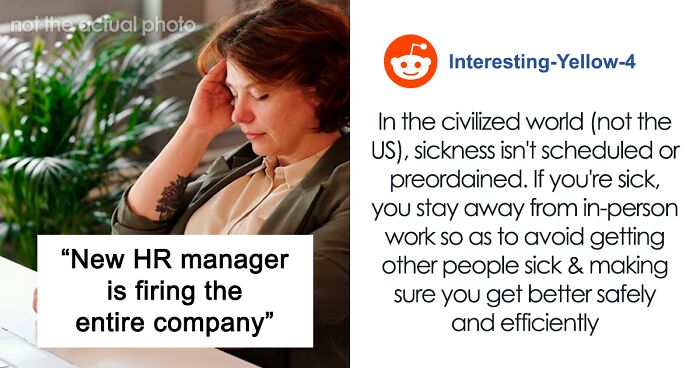
Company Grapples With Mass Departures Due To Insane Sick Day Restrictions By New HR
Interview With ExpertGetting sick is always frustrating. It seems to happen at the worst times, when there’s an important event or holiday coming up, and illnesses love to linger around for weeks like a houseguest who’s long overstayed their welcome. But the last thing we should have to worry about while ill is how small our paycheck will be this month, or if we’ll even have a job left at all.
One Redditor recently shared that their wife’s company has a new HR manager who has made an extremely controversial choice when it comes to handling sick days. Below, you’ll find the full story, as well as a conversation with Anjan Pathak, Co-founder of Vantage Fit.
Sick leave is something that every company has to navigate
Image credits: Andrea Piacquadio / pexels (not the actual photo)
But one HR manager made a terrible mistake by deciding exactly how many sick days is enough for an entire year
Image credits: Marcus Aurelius / pexels (not the actual photo)
Image credits: Polina Tankilevitch / pexels (not the actual photo)
Image credits: BangarangJack
“Allowing employees to take sick days acknowledges the importance of mental and physical health”
Image credits: Polina Tankilevitch / pexels (not the actual photo)
To learn more about the importance of having access to sick days, we reached out to Anjan Pathak, Co-founder of Vantage Fit, who was kind enough to have a chat with Bored Panda. Anjan shared that “ensuring that employees can take sick days is integral to fostering a culture of holistic well-being within organizations, which aligns closely with Vantage Fit’s mission.”
He noted that having sick leave promotes employee health and wellness, prevents the spread of illness, boosts productivity and engagement and demonstrates care and support. “In a corporate space we understand that employee well-being extends beyond physical fitness,” Anjan says. “Allowing employees to take sick days acknowledges the importance of mental and physical health. By prioritizing rest and recovery when employees are unwell, we contribute to their overall wellness and reduce the risk of burnout or long-term health issues.”
“In workplaces where employees are encouraged to come to work even when they’re sick due to a lack of sick leave policies, there’s a higher risk of illness spreading among colleagues,” he continued. “By providing sick days, we help mitigate this risk, promoting a healthier work environment for everyone.”
When it comes to boosting productivity and engagement, the expert says, “When employees are forced to work while sick, their productivity and engagement levels are likely to suffer. By allowing them to take time off to recuperate, we ensure that they return to work fully recharged and ready to contribute effectively to their roles.”
Anjan added that “implementing robust sick leave policies demonstrates to employees that their health and well-being are valued by the organization. This fosters a sense of loyalty and commitment among team members, leading to higher retention rates and a more positive company culture overall. In conclusion, we deliberately put our efforts in enabling employees to take sick days not only supports their individual health and well-being but also contributes to a more productive, engaged, and caring work environment, which is at the core of Vantage Fit’s values and objectives.”
“Employers should strive to offer a reasonable amount that prioritizes employee health and supports a positive work environment”
Anjan also says that the number of sick days employees should be entitled to per year depends on various factors, including industry standards, regional regulations, and the specific needs of the workforce. He recommends companies consider balancing employee health and business needs, typical industry standards, legal requirements, employee feedback and wellness initiatives, while still being flexible and accommodating.
“It’s essential to strike a balance between supporting employee health and ensuring business continuity,” the expert shared. “Offering an adequate number of sick days helps prevent presenteeism (employees coming to work while sick), which can negatively impact productivity and even lead to the spread of illness among colleagues. While there’s no one-size-fits-all answer, many industries typically offer around 5 to 10 sick days per year. However, this can vary depending on factors such as the work’s nature, potential health risks, and organizational culture.”
“Employers should also consider any legal requirements or regulations regarding sick leave in their jurisdiction. Some regions mandate a minimum number of sick days that employers must provide to employees,” Anjan added. “It’s crucial to solicit feedback from employees regarding their needs and preferences regarding sick leave. Additionally, organizations like Vantage Fit can complement sick leave policies with wellness initiatives aimed at promoting overall health and preventing illness.”
Finally, Anjan says that offering flexibility in sick leave policies, such as allowing employees to use sick days for family care or mental health days, can further support employee well-being. “While there’s no universally applicable number of sick days, employers should strive to offer a reasonable amount that prioritizes employee health and supports a positive work environment,” he explained. “Regular assessment and adjustment of sick leave policies based on feedback and evolving needs are essential to ensure that employees feel supported and valued.”
We also asked Anjan what advice he would give employees in situations like this one. “I understand the significance of navigating situations where employees are faced with limited sick days. It’s essential to recognize that employees’ health and well-being are fundamental aspects of a thriving workplace environment,” he told Bored Panda. “In such circumstances, it’s crucial for employees to approach the situation with a balanced perspective, prioritizing their health while considering the implications of the available sick leave on their work and overall job satisfaction.”
“If the lack of sick days significantly impacts your ability to manage your health and well-being, it may be worth exploring alternative employment opportunities”
Image credits: Igal Ness / unsplash (not the actual photo)
He went on to note that employees should prioritize their health, as “pushing through illness can prolong recovery and potentially lead to more serious health issues down the line.” It’s also wise to communicate with your employer and explore flexible work arrangements, such as working remotely or having flexible hours, if those options can help you take less sick days.
Anjan also suggests assessing your overall job satisfaction. “Evaluate whether the limited sick leave policy is indicative of broader issues with work-life balance, support for employee well-being, or company culture,” he says. “If the lack of sick days significantly impacts your ability to manage your health and well-being, it may be worth exploring alternative employment opportunities with companies that offer more comprehensive benefits packages, including sufficient sick leave or remote work.”
“Ultimately, the decision to stay at a job with limited sick days available depends on various factors, including your individual circumstances, the importance of the job to your career goals, and the overall alignment of the company culture with your values and priorities,” Anjan continued. “It’s essential to weigh the pros and cons carefully and prioritize your health and well-being in the long term.”
“It’s crucial for both employees and employers to prioritize employee well-being beyond just providing sick days,” the expert added. “This includes fostering a culture of well-being through initiatives like mental health resources and flexible work arrangements. Employees can advocate for policy changes and utilize available resources, while also managing their workload effectively. By addressing these aspects, workplaces can create a healthier and more supportive environment for all.”
We would love to hear your thoughts on this situation in the comments below, pandas. Then, if you’re interested in another Bored Panda article discussing similar issues, look no further than right here.
Later, the man answered a few questions and added more information about the situation
Readers were quick to share their thoughts and suggestions, and the OP joined in on the conversation
Poll Question
Thanks! Check out the results:
Wow OP's comment that if they riot their police will shoot them just hit me like a train. I think many of Europeans at least once thought "why isn't the US rioting about their working and health conditions", I just didn't connect the dots and feel so stupid now :O
Yeah, I'm waiting on a "French Revolution" kind of response from US employees, with guillotins and all the works. I just can't believe the kind of treatment they are subjected to.
Load More Replies...The concept of limited sick days is so unethical. Here in Germany, you get unlimited sick days. Then you get additional sick days for when your small child is sick at home. And if you're pregnant, you get unlimited leave for doctor's appointments (that means your employer can't deny you absence from work and you don't have to work the additional hours at another time).
I read that OP stated unscheduled sick days and took it to mean call outs. I guess OP needs to clarify whether or not HR is including scheduled sick time or call ins.
Load More Replies...Don't worry, they're getting rid of the right to vote too.
Load More Replies...The problem, as I see it, is that getting a doctor note in the US is way more problematic and expensive than most people can afford. Here in Italy I can get as many days of sick leave as I want (until six months, then the employer can start the termination procedure) and the biggest problem is getting an appointment, as our "medico di base" are swamped at the moment, and no other medic's note is valid.
Employers don't care if you have a dr.s note. They only care about how many vacation days/PTO you've earned. Even if you say you know you are taking an unpaid week off they hold it against you. So start a new job and you have zero days off for the first year, 1 week off a year for the first three and 3 weeks off after that if you're lucky.
Load More Replies...We used to get 3-4 weeks vacation, 10 sick days, and paid holidays. You could accrue the sick time so that you had it to cover FMLA periods. This year they changed it to 20 or 25 days PTO. You can only accrue your max yearly allotment, then they stop giving it to you until you use some. (Good luck with paid maternity leave!) They did this for 2 reasons - 1 - people were using sick time for "I don't feel like going to work today", and 2 - the state passed guidelines intended for places that offered no PTO, but accidently affected companies with "better than minimum" plans. As a side note - it isn't the sick usage that irritates your boss, it's the "unplanned". If you have a lot of doctors appointments, no one will say anything as long as you let them know in advance. But taking a "me day" when you know Judy is on maternity leave, and Brad and Jo are on vacation, and Cindy is in training all week - no. Just no.
Pre-pandemic I got fired for missing too many days for medical reasons. They tried to get me to quit, I told them no, fire me. I had Dr.s notes. I received unemployment for a long time. weird part was they weren't giving me off enough days to heal properly so getting fired worked out better. Oh, and a few months later my former supervisor, only in his 50s, died. Cocain is a hellava d**g kids.
The thing nobody talks about in Europe is that employers are reluctant to hire young women of birthing age won’t give permanent contracts because they’ll get screwed by TOO MANY employee rights that treat employers like they exist to cater to employees. Unless you get a job for a corporation that can afford to coddle employees, the smaller businesses which are in the majority are very selective about who they employ. Which is why VAST majority of young people have work histories that rarely last more than 6-12 months at each job
Except employers do the same in the US, only without the benefits.
Load More Replies...Wow OP's comment that if they riot their police will shoot them just hit me like a train. I think many of Europeans at least once thought "why isn't the US rioting about their working and health conditions", I just didn't connect the dots and feel so stupid now :O
Yeah, I'm waiting on a "French Revolution" kind of response from US employees, with guillotins and all the works. I just can't believe the kind of treatment they are subjected to.
Load More Replies...The concept of limited sick days is so unethical. Here in Germany, you get unlimited sick days. Then you get additional sick days for when your small child is sick at home. And if you're pregnant, you get unlimited leave for doctor's appointments (that means your employer can't deny you absence from work and you don't have to work the additional hours at another time).
I read that OP stated unscheduled sick days and took it to mean call outs. I guess OP needs to clarify whether or not HR is including scheduled sick time or call ins.
Load More Replies...Don't worry, they're getting rid of the right to vote too.
Load More Replies...The problem, as I see it, is that getting a doctor note in the US is way more problematic and expensive than most people can afford. Here in Italy I can get as many days of sick leave as I want (until six months, then the employer can start the termination procedure) and the biggest problem is getting an appointment, as our "medico di base" are swamped at the moment, and no other medic's note is valid.
Employers don't care if you have a dr.s note. They only care about how many vacation days/PTO you've earned. Even if you say you know you are taking an unpaid week off they hold it against you. So start a new job and you have zero days off for the first year, 1 week off a year for the first three and 3 weeks off after that if you're lucky.
Load More Replies...We used to get 3-4 weeks vacation, 10 sick days, and paid holidays. You could accrue the sick time so that you had it to cover FMLA periods. This year they changed it to 20 or 25 days PTO. You can only accrue your max yearly allotment, then they stop giving it to you until you use some. (Good luck with paid maternity leave!) They did this for 2 reasons - 1 - people were using sick time for "I don't feel like going to work today", and 2 - the state passed guidelines intended for places that offered no PTO, but accidently affected companies with "better than minimum" plans. As a side note - it isn't the sick usage that irritates your boss, it's the "unplanned". If you have a lot of doctors appointments, no one will say anything as long as you let them know in advance. But taking a "me day" when you know Judy is on maternity leave, and Brad and Jo are on vacation, and Cindy is in training all week - no. Just no.
Pre-pandemic I got fired for missing too many days for medical reasons. They tried to get me to quit, I told them no, fire me. I had Dr.s notes. I received unemployment for a long time. weird part was they weren't giving me off enough days to heal properly so getting fired worked out better. Oh, and a few months later my former supervisor, only in his 50s, died. Cocain is a hellava d**g kids.
The thing nobody talks about in Europe is that employers are reluctant to hire young women of birthing age won’t give permanent contracts because they’ll get screwed by TOO MANY employee rights that treat employers like they exist to cater to employees. Unless you get a job for a corporation that can afford to coddle employees, the smaller businesses which are in the majority are very selective about who they employ. Which is why VAST majority of young people have work histories that rarely last more than 6-12 months at each job
Except employers do the same in the US, only without the benefits.
Load More Replies...
 Dark Mode
Dark Mode 

 No fees, cancel anytime
No fees, cancel anytime 







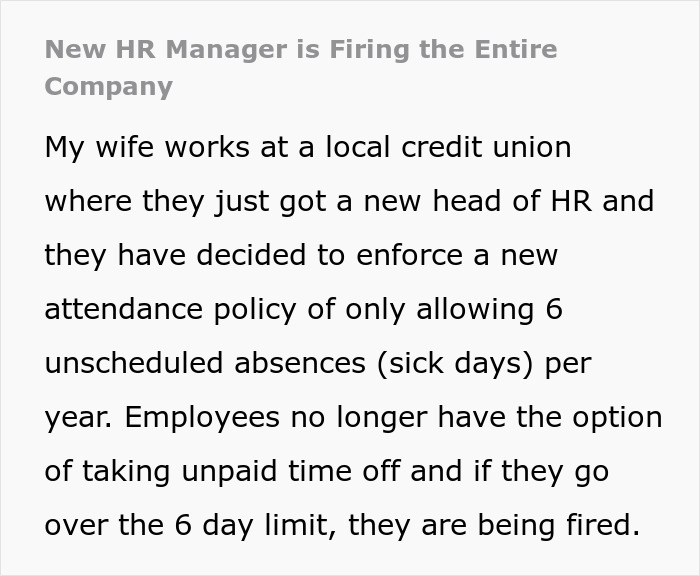
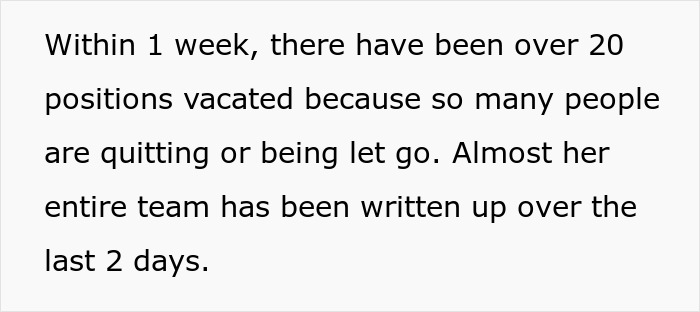
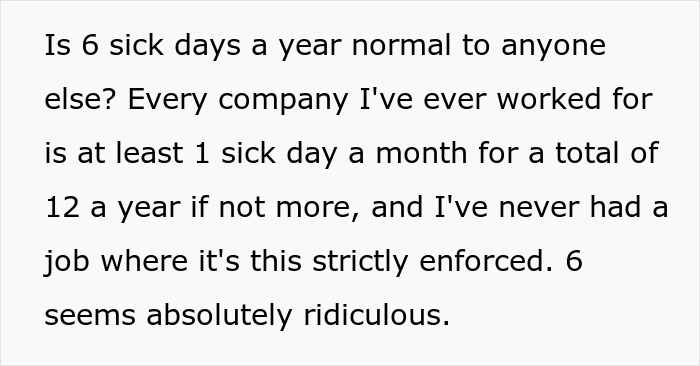

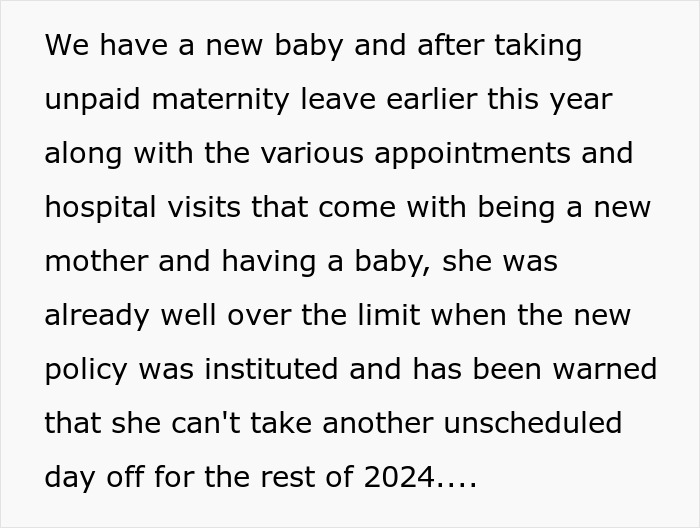
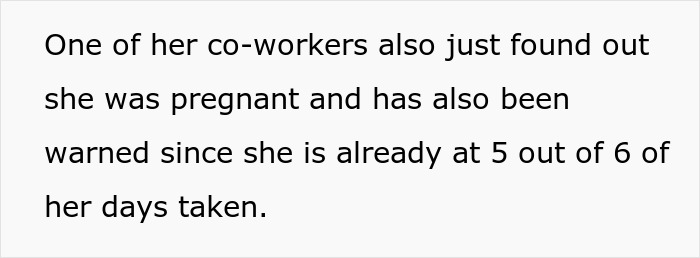

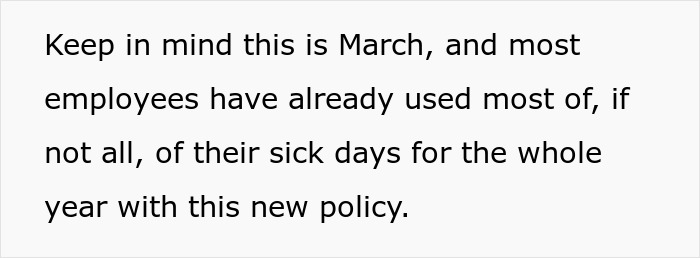
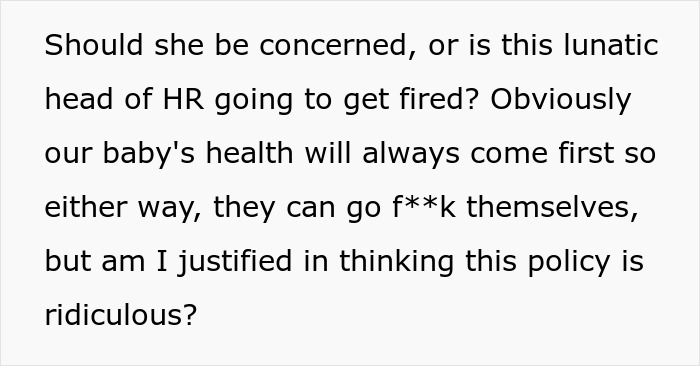
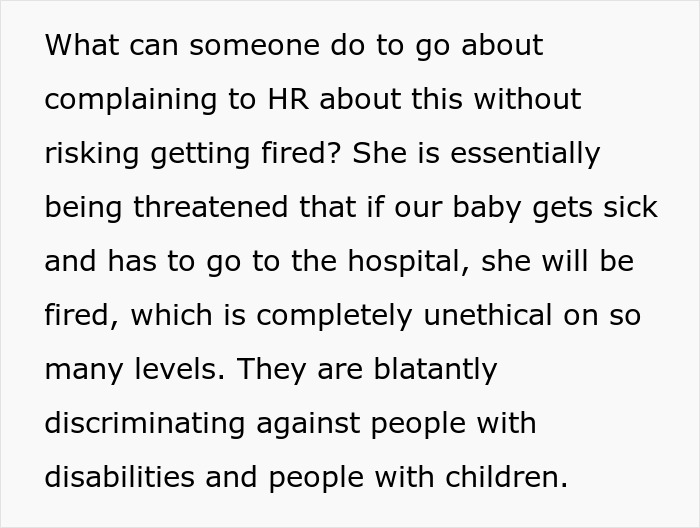



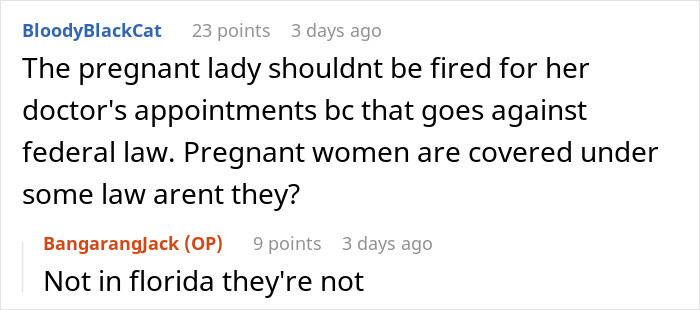
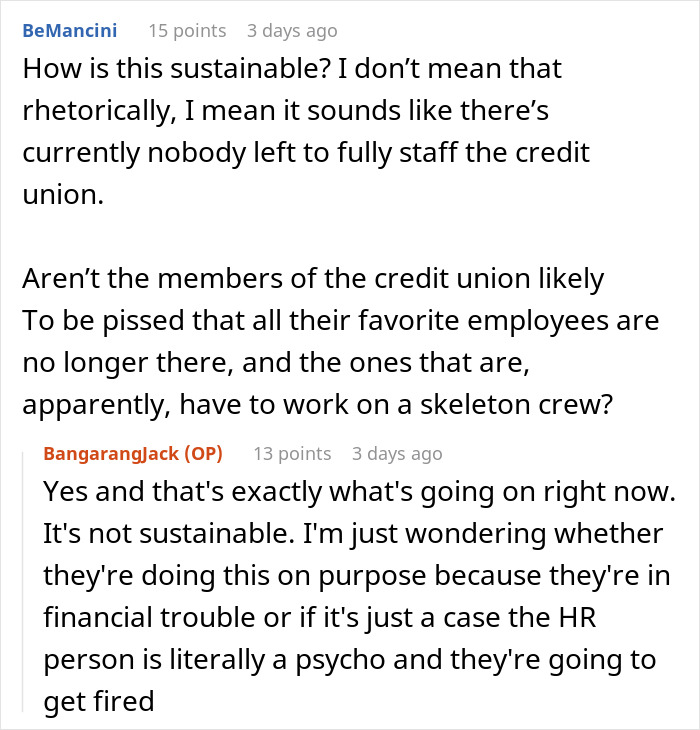
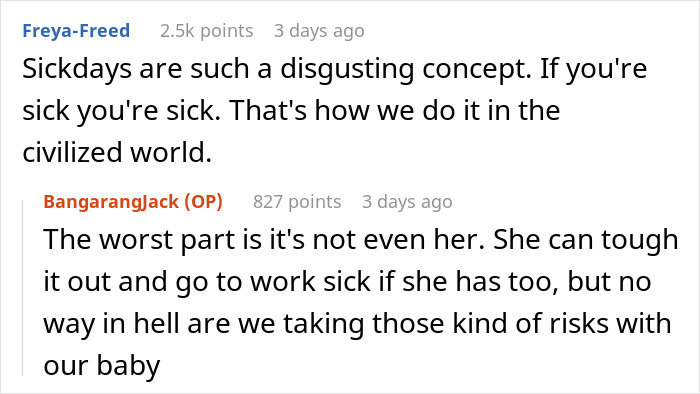
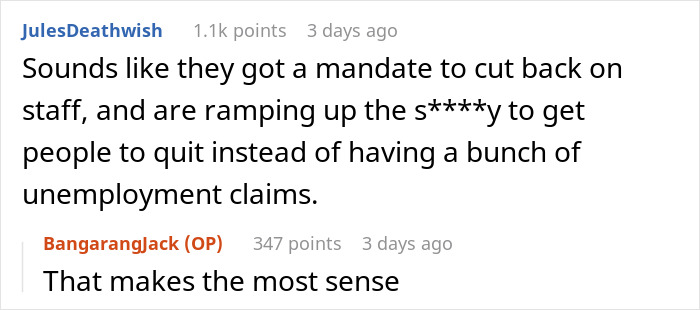
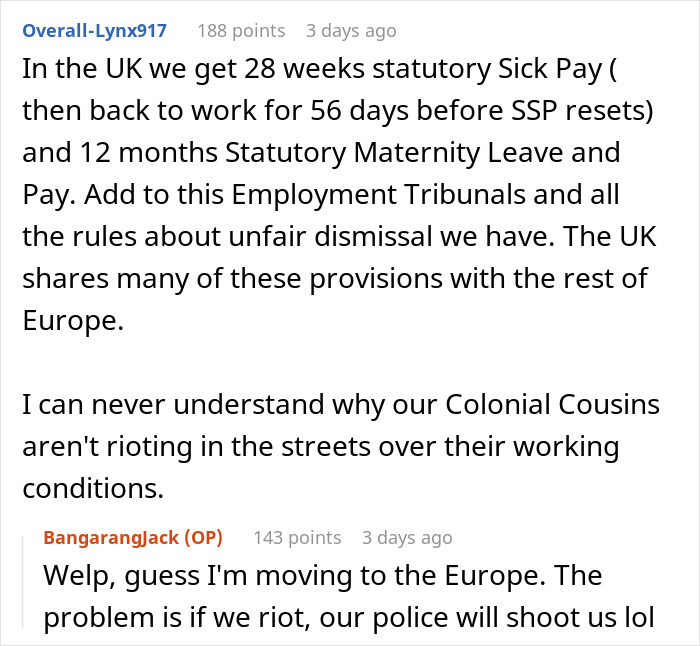
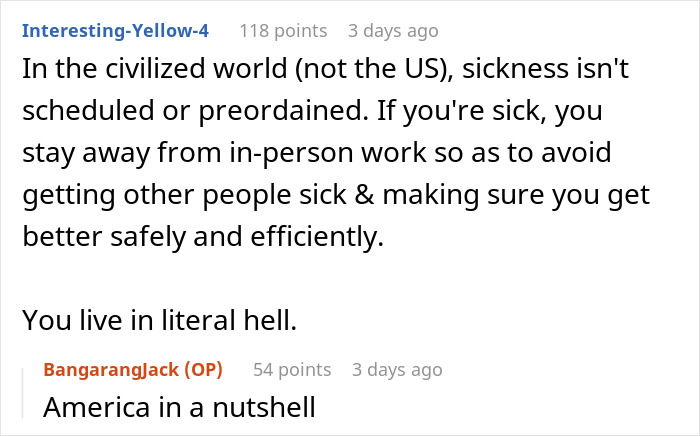
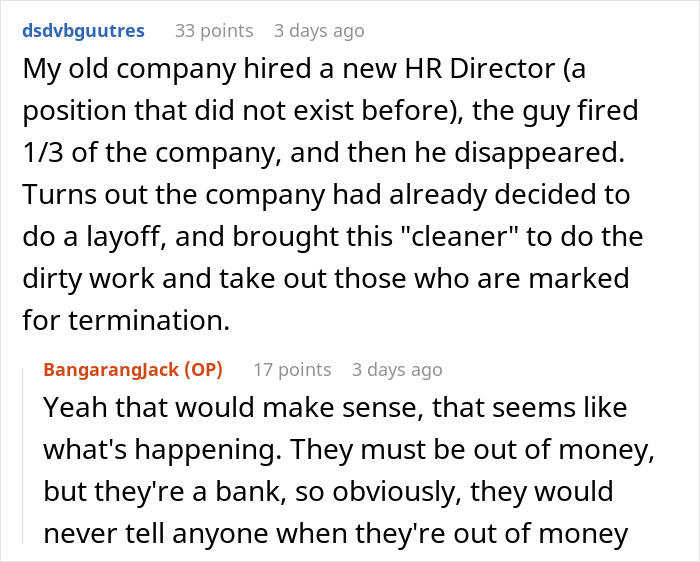
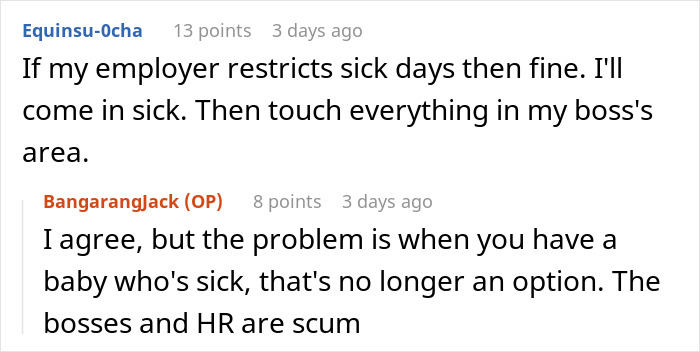
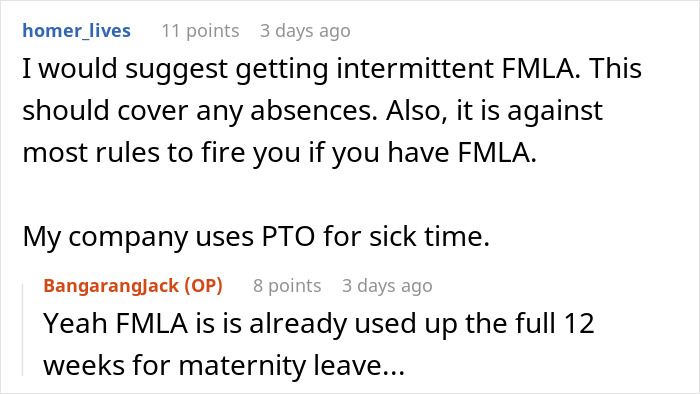
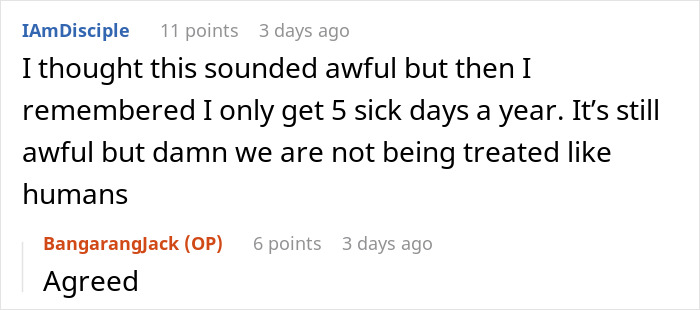
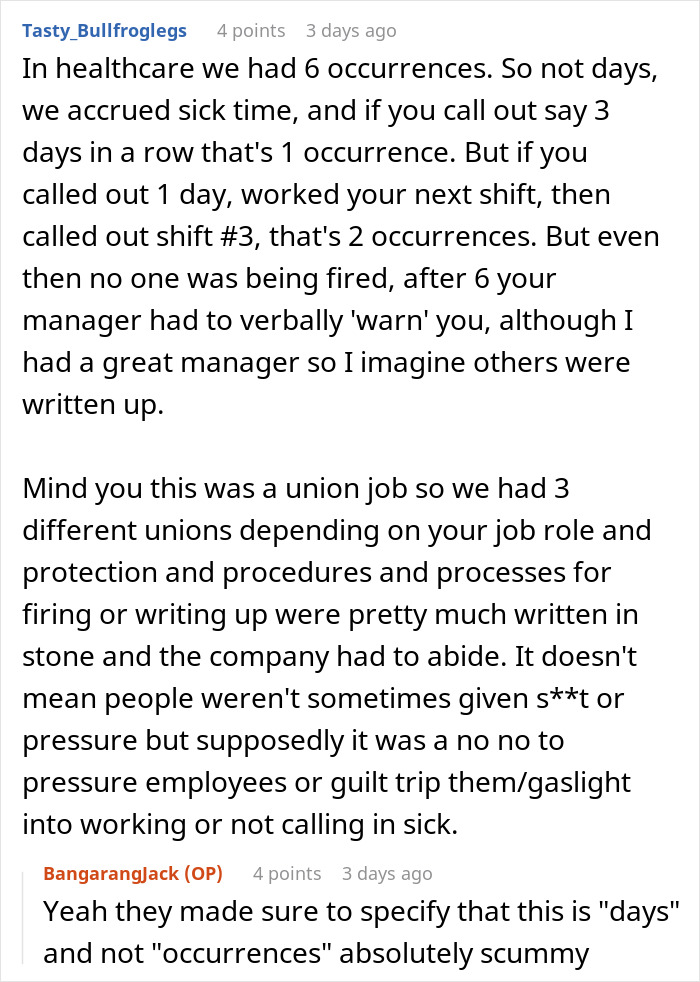














































22
39